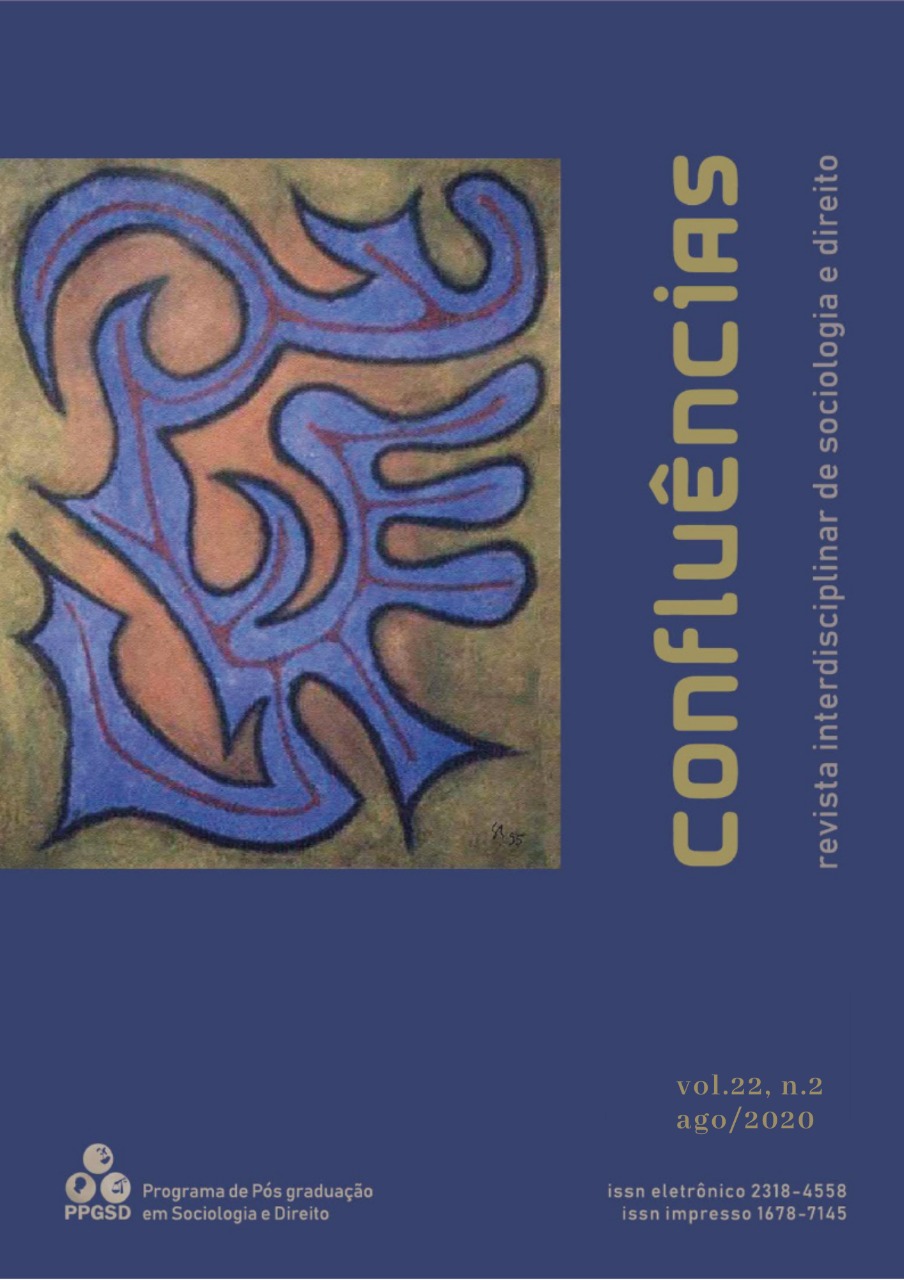AT WAR AND WITHOUT WEAPONS: THE GLOBAL PANDEMIC AND THE DISMANTLING OF SCIENCES IN BRAZIL
DOI:
https://doi.org/10.22409/conflu.v22i2.43046Keywords:
scientific research. Science. Covid-19.Abstract
The community of researchers and scientific staff in Brazil has suffered restrictions of all kinds: of a political nature, with attacks on university autonomy and interference with research promotion agencies; economic, in view of the cuts and contingencies affecting the Education and Science and Technology ministries; and even ethics and morals, because of the insults given by public authorities that accuse the scientific research environments as places of “turmoil”, denying them due social relevance and in the name of an agenda of customs that imposes neo-Pentecostal fundamentalism on agendas properly scientific; all this in times of global pandemic has demonstrated the notable lack of preparation of the federal government for the adequate confrontation, in defense of the most vulnerable extracts of Brazilian society, historically removed from power structures and neglected by social rights. Due to the public's disdain for science, by the public authorities who should manage the sector, there are basically two questions: to what extent regular investment in research could contribute to the fight against Covid-19 and what motivations lead to government policies that compromise the achieving the necessary results. This work aims to analyze the correlation between science dismantling practices in Brazil and the subsequent inability to face the diverse evils that result from the world pandemic and among which the health crisis is not its only and exclusive dimension; in a specific way, we intend to diagnose the budgetary, physical and material conditions with which the public institutions in charge of these researches have worked. For this, the descriptive and exploratory model is adopted, in order to give an account of initial impressions about the problem theme, since we are still in the middle of the crisis that we intend to analyze. The investigation of public data that inform the scale of the crisis and that allow measuring the lack of resources for the development of science in Brazil, will demonstrate (so we intend) the correlation between divestments in science and the growing vulnerability of the subordinate social strata to the most harmful effects. of the pandemicDownloads
References
AMIB. AMIB apresenta dados atualizados sobre leitos de UTI no Brasil. On-line. Março de 2020. Disponível em: http://www.epsjv.fiocruz.br/sites/default/files/files/dados_uti_amib(1).pdf. Acesso em: 14 mai 2020.
BADARÓ, Leônidas. Justiça autoriza contratar médicos formados no exterior sem CRM. Ac24horas. On-line. 11 de maio de 2020. Disponível em: <https://www.ac24horas.com/2020/05/11/justica-federal-autoriza-governo-do-acre-contratar-medicos-formados-no-exterior-sem-crm/. Acesso em: 14 mai 2020
BRANDAO, Marcelo. Federais formam 1,2 mil antecipadamente para combate à covid-19. Agencia Brasil. Educação. On-line. 04 de maio de 2020. Disponível em: https://agenciabrasil.ebc.com.br/educacao/noticia/2020-05/federais-formam-12-mil-antecipadamente-para-combate-covid-19. Acesso em: 14 mai 2020.
BRASIL. Ministério da ciência, tecnologia, inovações e comunicações – MCTIC. Indicadores nacionais de ciência, tecnologia e inovação 2019. Disponível em: https://www.mctic.gov.br/mctic/export/sites/institucional/indicadores/arquivos/Indicadores_CTI_2019.pdf . Acesso em: 27 mai 2020.
______. Instituto Brasileiro de Geografia e Estatística. Produto Interno Bruto. Sistema IBGE de Recuperação Automática – SIDRA. Contas Nacionais Atuais. [201_]. On-line. Disponível em: https://sidra.ibge.gov.br/tabela/6784#resultado. Acesso em: 27 mai 2020.
CARVALHO, R. Nascimento. Combate ao coronavírus expõe faceta sórdida de países ricos: vidas são descartáveis. Diálogos do sul. On-line. 7 de abril de 2020. Disponível em https://dialogosdosul.operamundi.uol.com.br/analise/64029/combate-ao-coronavirus-expoe-faceta-sordida-de-paises-ricos-vidas-sao-descartaveis. Acesso em 26 mai 2020.
NORTE, Diego Braga. Cortes e mais cortes: o que será da ciência e da pesquisa no Brasil? Voce S/A. Carreira. 09 de março de 2020. On-line. Disponível em: https://vocesa.abril.com.br/carreira/cortes-bolsas-pesquisa-ciencia/. Acesso em: 04 mai 2020.
PACHECO, Paula. Verba para pesquisa cai 50% entre 2014 e 2016. Valor Econômico. Empresas. On-line. 30 de nov 2017. Disponível em: https://valor.globo.com/empresas/noticia/2017/11/30/verba-para-pesquisa-cai-50-entre-2014-e-2016.ghtml. Acesso em: 04 mai 2020.
SALDAÑA, Paulo. MEC faz novos cortes e não irá financiar nenhum novo pesquisador neste ano. Folha de São Paulo. Educação. Disponível em: https://www1.folha.uol.com.br/educacao/2019/09/mec-faz-novos-cortes-e-nao-ira-financiar-nenhum-novo-pesquisador-neste-ano.shtml. Acesso em: 04 abr 2020.







